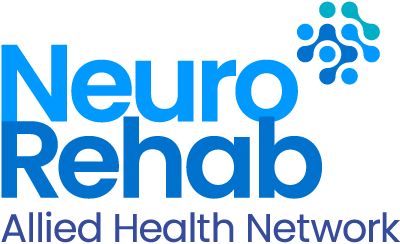Dietetics
Dietitians help people to understand the relationship between food and health. At NeuroRehab, our dietitians provide expert nutrition and diet advice for people of all ages and neurol conditions. They complete assessments, develop diet plans, provide education to people and their care team, and provide periodic reviews to support people to achieve their health and wellbeing goals.
NDIS participants
can use
Core funding
for nutrition
supports
Dysphagia
Dietitians can support people who experience difficulties with chewing and swallowing (dysphagia) and those placed on a texture modified diet. They ensure modified diets have the right amount of nutrients to keep the person healthy, which is enjoyable and safe for the person. Where indicated this may involve prescribing diet supplements.
Download the Mealtime Management & Dysphagia and Dysphagia – The Role of the Dietitian info sheets at the bottom of this page.
Wound healing
People with wounds need more food and specific nutrients such as protein, to heal quickly. The role of the dietician is to advise on how diet changes may help promote wound healing. This may include recommending supplements or enteral feeding.
Our dietitian has extensive experience in managing (IBS) and is a Monash low FOD-MAP trained dietician
Gastro intestinal symptoms such as constipation and reflux
Dietitians can help manage many types of gastrointestinal issues such as constipation, reflux, diarrhoea, IBS (irritable bowel syndrome) and coeliac disease.
Disabilities such as spinal cord injuries and scoliosis (curvature of the spine) may exacerbate symptoms.
Gastrointestinal issues can be due to a number of reasons including:
The amount of fibre in your diet
Medication changes
Foods which can exacerbate symptoms
Position when eating
Body shape, such as a curved spine
Nerve or spinal cord injuries
Sitting for long periods of time such as those in a wheelchair.
Our dietitian Daniella has extensive experience in managing (IBS) and is a Monash low FOD-MAP trained dietician.
Weight management
Weight loss
Weight can be difficult to manage alongside a neurological injury or condition. Excessive weight can lead to diabetes, high cholesterol and high blood pressure and difficulty moving or socialising. Dietitians can help manage these conditions.
A dietitian can advise a diet to help achieve healthy weight and assist clients to build skills to manage their diets themselves. This may include:
Educating on portion control
Taking people on shopping tours
Teaching healthy meal preparation
Supporting meal planning
Reviewing exercise in relation to calorie intake
Reviewing behaviors which might lead to weight changes.
Weight gain
Dietitians work with people who are underweight. Dysphagia, painful eating, loss of appetite, and mealtime challenges such as stressful mealtimes and food refusal can all contribute to low weight. People who are underweight can be at risk of osteoporosis, poor healing, low energy, and a poor immune system. Dietitians may recommend food fortification (adding high-nutrient foods), supplements, or enteral feeding. Dietitians also work with children to support optimal growth and development.
Fussy eaters
When children eat from a limited range of foods, nutritional deficiencies and poor social or participation outcomes can result. Every sense is stimulated at mealtimes. The shape, colour, smell, taste and texture of food, as well as the mealtime environment can be a barrier to enjoying food. Dietitians can assist anxious eaters by identifying and addressing sensory issues, help introduce new foods and create meal plans which ensure the child still gets enough nutrients from the child’s preferred types of food.
Enteral feeding
People who have enteral feeding get their food and medication directly into their gastro system. Dietitians advise on the best feed for each person and devise a feeding regime to fit into the person’s daily routine to meet their needs. They can assist with:
Tube weaning
Advising of HEN formulas and nutritional supplements
NDIS funding support.
Dysphagia – The Role of the Dietitian
Click to download the Dysphagia – The Role of the Dietitian info sheet for more information.
Mealtime Management & Dysphagia
Click to download the Mealtime Management & Dysphagia info sheet for more details.










